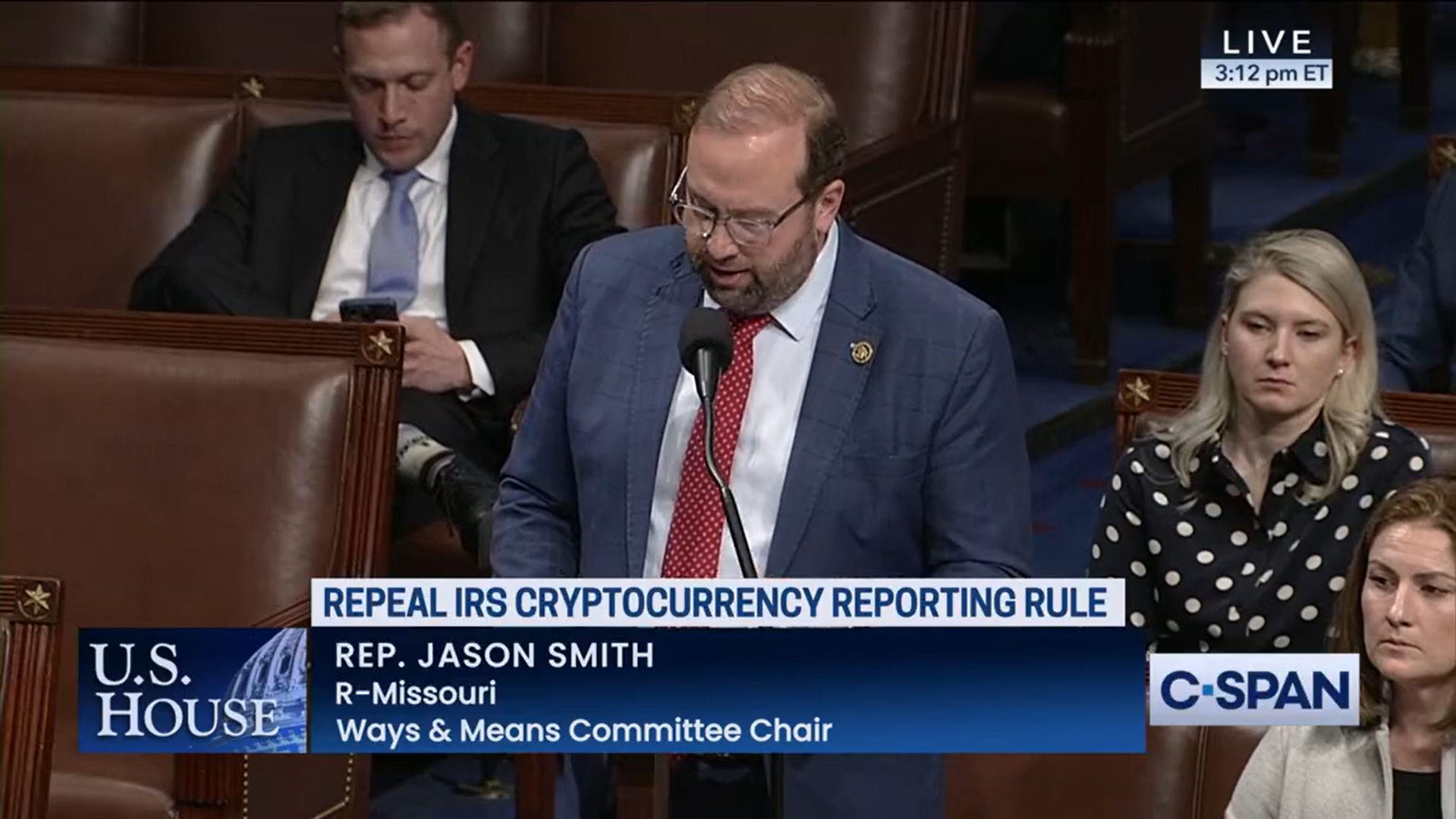IRS
Man Faces Six Years in Prison After Omitting $12,302,115 in CryptoPunk NFT Sales From Tax Filing
Published
2 weeks agoon
By
admin
A Pennsylvania man could serve up to six years in prison after filing false tax returns that underreported millions of dollars of income he made from selling non-fungible tokens (NFTs).
Waylon Wilcox earned most of his unreported money by hawking 97 CryptoPunk NFTs in 2021 and 2022, according to the U.S. Attorney’s Office for the Middle District of Pennsylvania.
The U.S. Attorney says Wilcox underreported his 2021 income by more than $8.5 million and reduced his tax burden by nearly $2.2 million. He then underreported his 2022 income by nearly $4.6 million and reduced his tax by more than $1 million. Both years, he indicated on his tax returns that he didn’t receive money for digital assets, but prosecutors say that he sold 97 CryptoPunks worth $12.3 million.
Explained Yury Kruty, Philadelphia Field Office Special Agent in Charge,
“IRS Criminal Investigation is committed to unraveling complex financial schemes involving virtual currencies and non-fungible token (NFT) transactions designed to conceal taxable income. In today’s economic environment, it’s more important than ever that the American people feel confident that everyone is playing by the rules and paying the taxes they owe.”
Wilcox pled guilty last week to two counts related to filing false tax returns. He will be sentenced at a later date and faces a maximum penalty of six years in prison.
Follow us on X, Facebook and Telegram
Don’t Miss a Beat – Subscribe to get email alerts delivered directly to your inbox
Check Price Action
Surf The Daily Hodl Mix
 

Disclaimer: Opinions expressed at The Daily Hodl are not investment advice. Investors should do their due diligence before making any high-risk investments in Bitcoin, cryptocurrency or digital assets. Please be advised that your transfers and trades are at your own risk, and any losses you may incur are your responsibility. The Daily Hodl does not recommend the buying or selling of any cryptocurrencies or digital assets, nor is The Daily Hodl an investment advisor. Please note that The Daily Hodl participates in affiliate marketing.
Generated Image: Midjourney
Source link
You may like


Bitcoin (BTC) Yield Platform Coming From Coinbase (COIN), Aspen Digital


The Emerging Market For State Services Via Citizen X


XRP Price Shoots For 20% Surge To $2.51 Amid Pullback To Breakout Zone


Stocks edge higher ahead of big earnings week


Here’s How Bitcoin Could Boost Demand for US Treasuries, According to Macro Guru Luke Gromen


Experts Predict US Recession in 2025 if Trump-China Trade War Tariffs Stay
DeFi
U.S. House Votes to Overturn IRS DeFi Broker Rule
Published
2 months agoon
March 12, 2025By
admin

A majority of lawmakers in the U.S. House of Representatives voted to overturn an IRS rule treating crypto entities as brokers and requiring them to collect certain taxpayer and transaction information, including decentralized finance (DeFi) platforms.
With a 292-132 vote, a bipartisan majority in the House joined the U.S. Senate in advancing the Congressional Review Act resolution overturning the rule finalized in the closing days of former President Joe Biden’s administration.
Missouri Republican Jason Smith, urging his fellow lawmakers to vote for the resolution earlier in the day, said the IRS rule risked harming U.S. businesses and disincentivized innovation.
“There are real questions that the rule can ever even be administered,” he said. “DeFi exchanges are not the same as centralized crypto exchanges or traditional banks or brokers. DeFi platforms do not and cannot even collect the information from users needed to implement this rule.”
Last week, 70 Senators voted to overturn the rule, and President Donald Trump’s senior advisers have already recommended he sign the provision. However, the Senate will need to approve the resolution again due to budget rules, Rep. Jason Smith (R-Mo.) noted. If it approves the resolution and Trump signs it, the IRS will be barred from ever bringing a similar rule again.
Illinois Democrat Danny Davis pushed back against the resolution, noting that it stemmed from the 2021 bipartisan Infrastructure Investment and Jobs Act, and comparing crypto to stocks.
“When you sell stock with a stock broker, the broker reports the proceeds of the sale to both you and the Internal Revenue Service,” he said. “Probably to no one’s surprise, when there is independent reporting on these sales, taxpayers are more likely to report their income to the Internal Revenue Service.”
North Carolina Republican Tim Moore said the rule “goes far beyond” Congress’s intention with the 2021 law.
“This rule has placed impossible burdens on software developers threatening American leadership in digital asset innovation,” he said.
Texas Democrat Lloyd Doggett called the resolution “special interest legislation,” adding that it could be “exploited by wealthy tax cheats, drug traffickers and terrorist financiers,” and add $4 billion to the national debt, conflicting with U.S. President Donald Trump’s stated goal of cutting the debt.
Tuesday’s vote was preceded by the House vote on a continuing resolution to fund the U.S. government through Sept. 30, 2025, which passed with 217 votes in favor to 213 votes against. That funding resolution now heads to the Senate.
Source link

Between the holidays and New Years, the IRS used the last passing days of the Biden administration to finalize its long feared Broker Rule: a regulation requiring all cryptocurrency exchanges – custodial and non-custodial, fiat to crypto and crypto to crypto – to effectively subject their users to Know-Your-Customer (KYC) measures.
The rule establishes that custody over funds is not necessary to be deemed a broker by the IRS, obliging “DeFi front-end services” to report trading activity via the 1099 tax form to the agency. This includes any developer of “screens, buttons, forms, and other visual elements incorporated in websites, mobile device apps, and browser extensions—that users can use to trade digital assets in their unhosted wallets”.
With its broker rule, the IRS deems said developers to have a certain amount of “control” over the offered services, despite never taking custody of coins and the lack of ability to influence the underlying protocols – the rule is in line with digital asset guidance from the Financial Action Task Force (FATF), which deems developers of user interfaces to qualify as Virtual Asset Service Providers subject to anti-money laundering and countering the financing of terrorism obligations.
Similar to FATF, the broker rule defines control as “the ability to amend, update, or otherwise substantively affect the terms under which the services are provided,” as well as “the ability to collect the fees charged for those services from the transaction flow […] whether or not the person actually collects fees in this manner,” and/or if that person has the ability “to add to the order a sequence of instructions to query the cryptographically secured distributed ledger to determine if the processed order is, in fact, executed or to use another method of confirmation based on information known to that person as a result of providing the trading front-end services.”
In light of such enormous overreach – control over funds has been widely understood as a prerequisite to be regulated as a financial service according to FinCEN guidance – the industry moved quickly. A day after publication of the rule, the Blockchain Association filed a lawsuit against the IRS and the Treasury Department, asking federal judges to strike the rule down before it takes effect, alleging that the rule is unconstitutional and contrary to existing federal laws.
In addition to the suit, Senator Ted Cruz introduced a joint resolution to disapprove of the IRS’ rule by Congressional power, co-sponsored by Senator Cynthia Lummis, Senator Bill Hagerty, Senator Mike Lee, and Senator Tim Scott, among others.
“This regulation undermines the purpose of DeFi technology: to enable individuals to freely buy, sell, and exchange digital assets,” Cruz said in a press release regarding the resolution. Representative Corey, who introduced the resolution together with Cruz, called the rule a “clear overreach”.
The resolution was voted on yesterday in the Senate, with overwhelming support of 70 to 27 in favor, and will now move for a vote in the House.
The broker rule is another effort of the Biden administration to extend control over non-custodial services. In both the criminal prosecution of Samourai Developers, as well as the criminal prosecution of Tornado Cash developers, the US Department of Justice is alleging that control over funds is not necessary to be held liable as a money service business under US law, arguing that the development of user interfaces and other features demonstrate enough control over a service to be subjected to sanctions, anti-money laundering and countering the financing of terrorism regulations.
While the possible overturning of the broker rule would no doubt be a success, the sentencing of Samourai and Tornado Cash developers would yield similar results regarding reporting requirements for non-custodial service providers.
To clarify that non-custodial service providers are exempt from being classified as money service businesses, the Blockchain Regulatory Certainty Act by Representative Tom Emmer has been introduced to Congress, offering widespread protections for developers.
This is a guest post by L0la L33tz. Opinions expressed are entirely their own and do not necessarily reflect those of BTC Inc or Bitcoin Magazine.
Source link
Blockchain
Blockchain groups challenge new broker reporting rule
Published
4 months agoon
December 28, 2024By
admin

Three prominent blockchain advocacy organizations filed a lawsuit challenging the Internal Revenue Service’s new broker reporting requirements.
The organizations argue that the rules could severely impact the U.S. digital asset sector, particularly decentralized finance (DeFi).
The Blockchain Association, DeFi Education Fund, and Texas Blockchain Council jointly filed the legal challenge in the U.S. District Court for the Northern District of Texas.
They contended that the IRS and Treasury Department’s final “broker” rulemaking exceeds their authority.
The lawsuit specifically targets the rule’s expansion of the “broker” definition to include providers of DeFi trading front-end services, despite these entities not directly facilitating transactions.
The Blockchain Association CEO Kristin Smith called the broker rule “unconstitutional,” alleging that the IRS is violating the Administrative Procedure Act.
Today we’re taking action, filing a lawsuit that argues today’s broker rulemaking violates the Administrative Procedure Act and is unconstitutional.
We stand with our nation’s innovators and will continue working to ensure the future of crypto – and DeFi – is here in the United… https://t.co/CwZWzjwT5O
— Kristin Smith (@KMSmithDC) December 28, 2024
According to the Blockchain Association’s Head of Legal, Marisa Coppel, this overreach “would push this entire, burgeoning technology offshore” while infringing on the privacy rights of individuals using decentralized technology.
DeFi Education Fund CEO Miller Whitehouse-Levine expressed strong disappointment in the timing and scope of the regulation. Miller called it “midnight rulemaking” that threatens financial innovation.
The organization emphasized DeFi’s potential to make financial services more accessible, efficient, and consumer-focused.
Texas Blockchain Council President Lee Bratcher highlighted the practical impossibility of compliance. He stated that many actors in the decentralized ecosystem simply cannot access the information now required by the IRS.
“This regulatory overreach risks driving critical development overseas, threatening US competitiveness in the digital economy,” Bratcher stated.
The legal challenge comes after numerous stakeholders warned during the public comment period about the potential negative impacts on the digital asset industry. Crypto.news had earlier reported that DeFi proponents had promised aggressive action against the IRS policies.
Source link

Bitcoin (BTC) Yield Platform Coming From Coinbase (COIN), Aspen Digital

The Emerging Market For State Services Via Citizen X

XRP Price Shoots For 20% Surge To $2.51 Amid Pullback To Breakout Zone

Stocks edge higher ahead of big earnings week

Here’s How Bitcoin Could Boost Demand for US Treasuries, According to Macro Guru Luke Gromen

Experts Predict US Recession in 2025 if Trump-China Trade War Tariffs Stay

Monero Jumps 51% After ‘Suspicious Transfer’ of $333M in Bitcoin

ZachXBT flags suspicious $330M Bitcoin transfer triggering Monero surge

Monero’s XMR Rockets 40% as XRP Leads Crypto Majors Gains

The 5 top crypto loan platforms of 2025

XRP Price Shows Strength — Breakout Above Key Levels Possible?

Expert Reveals Why The Ethereum-To-Bitcoin Ratio Is Falling

Analyst Says Solana-Based Memecoin Going Much Higher, Sees PENGU Facing ‘True Test’ After April Surge

Nike sued for $5 million over its shutdown of NFT platform RTFKT

Biological Age vs. Chronological Age: Redefining Age in the Digital Era

Arthur Hayes, Murad’s Prediction For Meme Coins, AI & DeFi Coins For 2025

Expert Sees Bitcoin Dipping To $50K While Bullish Signs Persist

3 Voting Polls Show Why Ripple’s XRP Price Could Hit $10 Soon

Aptos Leverages Chainlink To Enhance Scalability and Data Access

Bitcoin Could Rally to $80,000 on the Eve of US Elections

Crypto’s Big Trump Gamble Is Risky

Institutional Investors Go All In on Crypto as 57% Plan to Boost Allocations as Bull Run Heats Up, Sygnum Survey Reveals

The Future of Bitcoin: Scaling, Institutional Adoption, and Strategic Reserves with Rich Rines

Sonic Now ‘Golden Standard’ of Layer-2s After Scaling Transactions to 16,000+ per Second, Says Andre Cronje

Ripple-SEC Case Ends, But These 3 Rivals Could Jump 500x

Has The Bitcoin Price Already Peaked?

A16z-backed Espresso announces mainnet launch of core product

Xmas Altcoin Rally Insights by BNM Agent I

Blockchain groups challenge new broker reporting rule

I’m Grateful for Trump’s Embrace of Bitcoin
Trending

 24/7 Cryptocurrency News6 months ago
24/7 Cryptocurrency News6 months agoArthur Hayes, Murad’s Prediction For Meme Coins, AI & DeFi Coins For 2025

 Bitcoin3 months ago
Bitcoin3 months agoExpert Sees Bitcoin Dipping To $50K While Bullish Signs Persist

 Ripple Price1 month ago
Ripple Price1 month ago3 Voting Polls Show Why Ripple’s XRP Price Could Hit $10 Soon

 24/7 Cryptocurrency News4 months ago
24/7 Cryptocurrency News4 months agoAptos Leverages Chainlink To Enhance Scalability and Data Access

 Bitcoin6 months ago
Bitcoin6 months agoBitcoin Could Rally to $80,000 on the Eve of US Elections

 Opinion6 months ago
Opinion6 months agoCrypto’s Big Trump Gamble Is Risky

 Bitcoin6 months ago
Bitcoin6 months agoInstitutional Investors Go All In on Crypto as 57% Plan to Boost Allocations as Bull Run Heats Up, Sygnum Survey Reveals

 Bitcoin3 months ago
Bitcoin3 months agoThe Future of Bitcoin: Scaling, Institutional Adoption, and Strategic Reserves with Rich Rines


